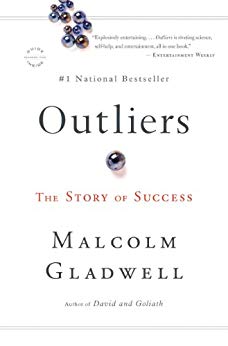

This article is an excerpt from the Shortform summary of "Outliers" by Malcolm Gladwell. Shortform has the world's best summaries of books you should be reading.
Like this article? Sign up for a free trial here .
How do social relationships affect health? What role does socializing play in well-being?
Research shows that social relationships are at least as important as diet and exercise for long-term health. Take a look, for example, at Roseto, a small town in Pennsylvania, where research suggested that tight-knit community relations were responsible for residents’ remarkably low levels of disease, alcoholism, and suicide.
Here’s how social ties contribute to health, as evidenced by the Roseto population.
The Context
Gladwell explains that in the 1880s and ‘90s, hundreds of immigrants from Roseto, Italy arrived in America and established Roseto, Pennsylvania. They developed their new American home in the style of their Italian hometown: Their houses were close to each other, multiple generations often shared a home, and people visited each other constantly. They respected elders, acted modestly about differences in wealth, and actively participated in church and civic organizations.
The Findings
Gladwell writes that by the late 1950s, a local doctor noticed that, as a group, Rosetans had unusually good health. So, in 1961, researchers conducted a 50-year study of Roseto’s residents.
Among the researchers’ findings, they discovered that no one under 55 showed any signs of heart disease, and men over 65 died from heart disease at half the rate of the US population. This was a big deal: At the time, heart disease was the leading cause of death of men under 65.
However, Gladwell says, the most surprising finding was that researchers ruled out diet, exercise, genetics, and geographic region as causes for Rosetans’ stellar health. Instead, they concluded that Rosetans’ health could be credited to the town’s robust sense of community. This health phenomenon is known as the Roseto effect.
| Create Your Own Roseto Effect Subsequent studies have confirmed that social ties are at least as important as diet and exercise for long-term health—and you don’t have to live in a community as unique as Roseto to reap the benefits. While many Rosetans lived with extended family and had community ties that stretched back generations, anyone can develop a social network that helps keep them healthy. A 2016 study from the Proceedings of the National Academy of Sciences revealed that having strong social connections throughout life improves health and increases longevity. Researchers focused on the link between social relationships and health during adolescence, midlife, and later in life. They found: -In adolescence, a large and varied social network benefits cardiovascular health and metabolism, which also reduces “pre-disease pathways,” or biological responses that become the seeds for diseases that emerge later in life. On the other hand, social isolation is as much a risk factor for inflammation as lack of exercise. -In midlife, the quality of relationships has greater health impacts than the quantity (whereas adolescents and elderly people benefit most from a larger web of relationships). On the flip side, stressful relationships put adults at higher risk of inflammation and abdominal obesity. -In late life, broad social networks appear to decrease the likelihood of hypertension and obesity. By the same token, social isolation creates a greater risk of hypertension than diabetes. |
The Takeaway
Gladwell presents the Roseto effect as evidence that an outlier becomes an outlier due to environmental benefits rather than individual choices and attributes. Rosetans ate fatty foods, drank alcohol, smoked, and didn’t exercise more than the average American—but the benefits of their close-knit community apparently outweighed those individual choices.
| Rosetans Are Gladwell’s Outliers—Not Roseto While the town of Roseto is an outlier because the collective health of its residents stands out compared to other communities, it doesn’t exactly hold up as an example of environment trumping innate attributes. If Roseto were the outlier in Gladwell’s sense, then the town’s surroundings and circumstances would be responsible for its residents’ good health; those external factors might include influence from surrounding cities, state politics that impact the town, and the national economic conditions. Instead, the individual residents represent Gladwell’s principle, and the community as a whole is merely part of the environment that makes them outliers. |
———End of Preview———

Like what you just read? Read the rest of the world's best summary of "Outliers" at Shortform . Learn the book's critical concepts in 20 minutes or less .
Here's what you'll find in our full Outliers summary :
- What makes some people outliers, and most others not
- Why some genius outliers end up failing in life
- Why Asians are good at math, and other curiosities of culture






